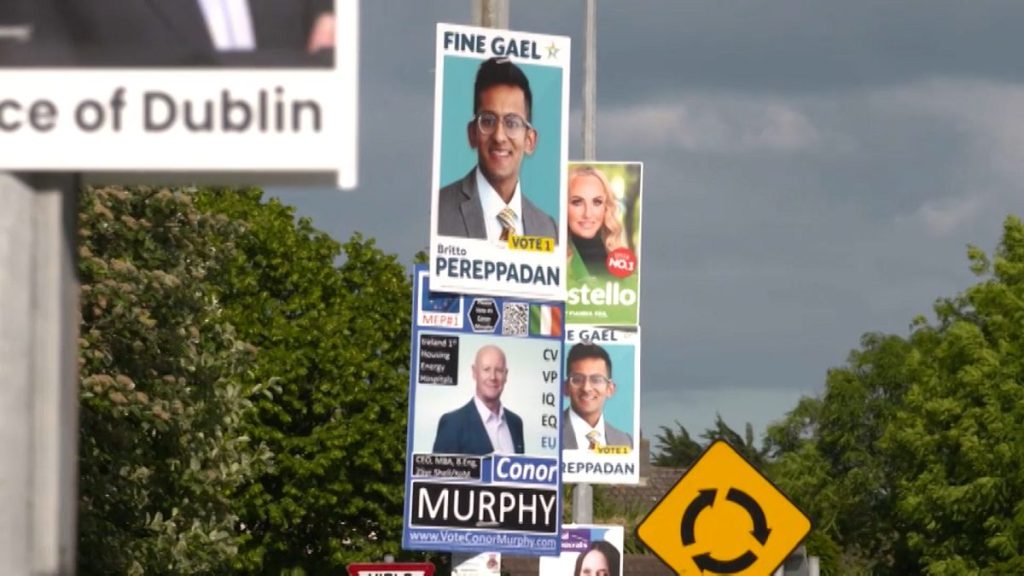Several emerging political parties in Ireland are making immigration a central issue in the upcoming 2024 European elections. These parties criticize the federal government’s immigration policies, claiming that while they are not against immigration, they believe the government has been too liberal on the issue. With one million people having entered Ireland since the mid-1990s, the new parties feel a need to address the growing population and its impact on Irish society. Recent events in Dublin, such as the dismantling of tents housing asylum seekers and far-right riots fueled by anti-immigrant sentiment, have further fueled the focus on immigration in Irish politics.
The focus on immigration in Ireland’s political arena marks a significant shift, as it has never been a dominant issue in the country’s history. With a population of five million and nearly one million immigrants arriving in the past few decades, the issue has become a pressing concern for many Irish citizens. The emergence of new political parties addressing immigration in their policy platforms reflects the growing discontent with the government’s approach to immigration. The parties acknowledge the importance of immigration to Ireland’s economy and cultural diversity but seek to address what they perceive as flaws in the current immigration system.
In response to ongoing events in Dublin, such as the dismantling of tents occupied by asylum seekers and far-right riots, political parties in Ireland are taking a critical stance on immigration policies. These incidents have highlighted the challenges faced by both immigrants and native Irish citizens, leading to a renewed focus on the issue in the political landscape. The new parties contesting the upcoming European elections aim to offer alternative perspectives on immigration and propose solutions to address the concerns raised by the Irish population. By making immigration a central issue in their platforms, these parties are seeking to attract voters who feel marginalized by the government’s immigration policies.
The events in Dublin, including the dismantling of tents housing asylum seekers and far-right riots, have intensified the debate on immigration in Irish politics. The new political parties contesting the European elections in 2024 are seizing on these events to draw attention to their respective stances on immigration policy. By criticizing the government’s approach to immigration and offering alternative solutions, these parties are seeking to appeal to voters who are dissatisfied with the status quo. The focus on immigration as a central issue in the election campaign reflects the changing dynamics of Irish politics and the growing importance of immigration in shaping public discourse.
The criticism of the government’s immigration policies by new political parties in Ireland represents a shift in the country’s political landscape. While immigration has traditionally not been a major issue in Irish politics, the influx of immigrants in recent decades has brought the issue to the forefront of public debate. The emergence of parties that prioritize immigration in their policy platforms indicates a growing awareness of the challenges posed by immigration and the need for a more nuanced approach to the issue. By addressing the concerns of both immigrants and native Irish citizens, these parties aim to offer a more inclusive and comprehensive vision for Ireland’s future.
As Ireland prepares for the 2024 European elections, the issue of immigration takes center stage in the political discourse. The new political parties contesting the elections are highlighting immigration as a key issue in their campaigns, criticizing the government’s policies and proposing alternative approaches. With recent events in Dublin underscoring the complexities of immigration in Irish society, these parties aim to offer fresh perspectives and solutions to address the challenges facing the country. By making immigration a central focus of their platforms, the parties seek to engage voters and shape the direction of Irish politics in the years to come.


